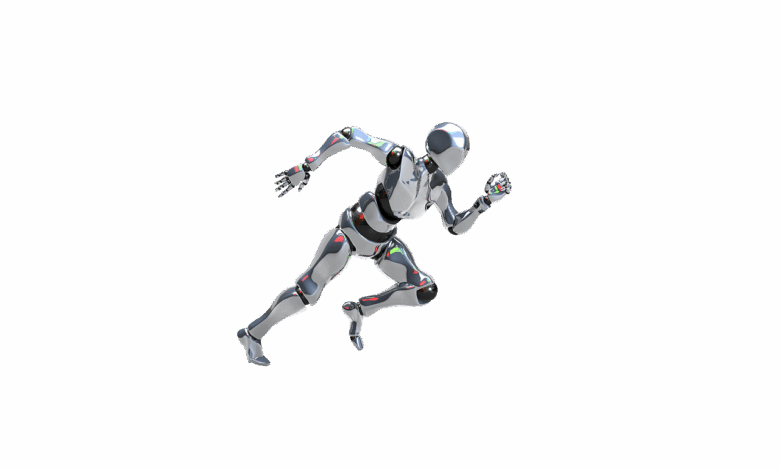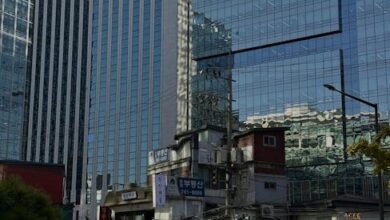SoftBank Bulks Up Its Robotics Portfolio With ABB Group’s Robotics Unit

SoftBank Bulks Up Its Robotics Portfolio With ABB Group’s Robotics Unit
Estimated Reading Time: 6 minutes
- Strategic Expansion: SoftBank has significantly expanded its robotics portfolio by acquiring a key unit from ABB Group, reinforcing its focus on “physical AI.”
- Visionary Commitment: This acquisition aligns with SoftBank’s long-term strategy of investing in intelligent machines and capitalizing on the surging global demand for automation across various sectors.
- Synergistic Capabilities: ABB Group’s robotics unit brings a legacy of robust industrial innovation and a global service network, providing critical hardware that perfectly complements SoftBank’s AI software and agile robotics investments.
- Industry Transformation: The deal is poised to accelerate the evolution of automation across manufacturing, logistics, healthcare, and retail, fostering more intelligent and human-centric robotic solutions.
- Business Imperative: Businesses must proactively adapt by strategically assessing automation needs, upskilling their workforce for human-robot collaboration, and exploring AI-driven robotics for adaptive intelligence to remain competitive.
- SoftBank Bulks Up Its Robotics Portfolio With ABB Group’s Robotics Unit
- The Strategic Rationale: Why Robotics, Why Now?
- ABB Group’s Robotics Unit: A Legacy of Innovation
- The Future of Automation: What This Means for the Industry
- Navigating the New Frontier: Actionable Steps for Businesses
- Conclusion
- Ready to Explore the Future of Automation?
- Frequently Asked Questions
In a move that sends ripples across the global technology and industrial automation landscape, SoftBank, the Japanese multinational conglomerate, has announced a significant expansion of its robotics holdings. This strategic acquisition involves a key robotics unit from the venerable Swiss-Swedish engineering giant, ABB Group. The deal underscores SoftBank’s unwavering commitment to pioneering the next generation of artificial intelligence and automation, solidifying its position at the forefront of technological innovation.
This latest investment is not merely an addition to SoftBank’s diverse portfolio; it represents a bold declaration of intent regarding the future of AI. The conglomerate sees more than just mechanical arms and automated systems in its new acquisition. It envisions a future where intelligent machines seamlessly integrate into our physical world, transforming industries and daily life alike. “SoftBank says this acquisition will help it dive deeper into robotics as it considers physical AI to be the next frontier.” This statement encapsulates the profound vision driving one of the most impactful tech investors of our time.
The Strategic Rationale: Why Robotics, Why Now?
SoftBank’s journey into robotics is well-documented. From its early investments in Boston Dynamics, known for its agile humanoid and quadruped robots, to its significant stake in ARM Holdings, a foundational provider of processor IP crucial for AI and embedded systems, SoftBank has consistently bet on the future of intelligent machines. This latest move with ABB Group’s robotics unit is a natural, yet highly impactful, evolution of that strategy.
The global demand for automation is skyrocketing across nearly every sector. Manufacturing facilities are seeking greater efficiency, precision, and flexibility. Logistics and warehousing operations are striving to meet the ever-increasing pace of e-commerce. Healthcare systems are exploring robotic assistance for surgical procedures and patient care. SoftBank’s investment acknowledges this pervasive need and positions it to capitalize on the burgeoning market for advanced robotic solutions.
The concept of “physical AI” is central to SoftBank’s long-term vision. Unlike purely digital AI, which resides in algorithms and data centers, physical AI refers to artificial intelligence embodied in robots and other autonomous systems that interact directly with the physical world. These machines perceive their environment, make decisions, and execute actions, fundamentally changing how work is done and services are delivered. The acquisition of ABB’s robust industrial robotics capabilities provides SoftBank with the critical hardware foundation needed to infuse cutting-edge AI into real-world applications at scale.
ABB Group’s Robotics Unit: A Legacy of Innovation
ABB Group has long been a powerhouse in industrial automation, with a history spanning over a century. Its robotics unit is recognized globally for its high-quality, reliable, and innovative robotic solutions. From heavy-duty industrial robots used in automotive assembly lines to collaborative robots (cobots) designed to work safely alongside humans, ABB has set industry standards.
The unit brings to SoftBank a comprehensive suite of products and services, including:
- Industrial Robots: Robust, high-performance robots for tasks ranging from welding and painting to assembly and material handling.
- Collaborative Robots (Cobots): Flexible and easy-to-program robots that enhance human productivity in shared workspaces.
- Robot Software and Controllers: Advanced programming tools, simulation software, and control systems that enable complex automation.
- Global Service Network: Extensive support and maintenance infrastructure, ensuring operational continuity for customers worldwide.
This deep expertise in industrial applications, coupled with a well-established global market presence, provides SoftBank with immediate access to a mature ecosystem. It perfectly complements SoftBank’s existing investments in agile robotics and AI software, creating a powerful synergy. The convergence of ABB’s hardware prowess with SoftBank’s AI-centric investment philosophy promises to accelerate the development and deployment of truly intelligent, adaptive, and autonomous physical AI systems.
The Future of Automation: What This Means for the Industry
This acquisition is poised to accelerate the evolution of automation across multiple sectors. We can expect to see more intelligent, flexible, and human-centric robotic solutions emerging faster than ever before. The implications are vast:
- Manufacturing: Factories will become smarter, more adaptive, and highly responsive to demand fluctuations, with robots handling intricate assembly, quality control, and logistics more autonomously.
- Logistics and Warehousing: Autonomous mobile robots (AMRs) and advanced picking robots, integrated with sophisticated AI, will streamline supply chains, reduce delivery times, and enhance operational efficiency.
- Healthcare: Robotic systems will assist in sterile environments for surgeries, automate lab tasks, and even support patient mobility and care, freeing up human professionals for more critical, empathetic interactions.
- Retail and Services: From inventory management to customer assistance, robots powered by advanced AI will redefine the in-store experience and back-end operations.
The focus will increasingly shift towards seamless human-robot collaboration, where robots augment human capabilities rather than simply replacing them. This requires robots to be more perceptive, capable of understanding human intent, and adaptable to dynamic environments.
Real-World Example: Imagine a modern car manufacturing plant where ABB’s industrial robots precisely weld and assemble heavy components on the main line. Simultaneously, new AI-driven collaborative robots, leveraging SoftBank’s vision, work alongside human technicians on custom interior finishes, using advanced sensors to detect human presence and adapt their movements. Further, autonomous mobile robots intelligently ferry parts between workstations, constantly optimizing their routes based on real-time factory floor data. This integrated ecosystem, powered by “physical AI,” represents the synergistic future that SoftBank is building.
Navigating the New Frontier: Actionable Steps for Businesses
As the landscape of automation rapidly evolves, businesses must proactively adapt to remain competitive. SoftBank’s move underscores the urgency of integrating advanced robotics and AI. Here are three actionable steps:
- Assess Your Automation Needs Strategically: Don’t automate for automation’s sake. Conduct a thorough analysis of your operational bottlenecks, repetitive tasks, and areas where precision and speed are critical. Identify where robotics can deliver the highest ROI, improve safety, or enhance product quality. Prioritize solutions that align with your long-term business goals, rather than just short-term fixes. Consider a phased approach, starting with smaller, manageable projects to build expertise and demonstrate value.
- Invest in Upskilling Your Workforce for Human-Robot Collaboration: The rise of physical AI doesn’t diminish the need for human talent; it reshapes it. Future workforces will require new skills in robot operation, maintenance, programming, and oversight. Establish training programs that prepare your employees to work alongside intelligent machines. Foster a culture of continuous learning and adaptability, ensuring your team can leverage robotic systems to enhance their own productivity and focus on higher-value tasks, rather than fearing job displacement.
- Explore AI-Driven Robotics Solutions for Adaptive Intelligence: Move beyond basic automation. Investigate robotic systems that incorporate artificial intelligence for enhanced capabilities such as machine vision, adaptive learning, predictive maintenance, and complex decision-making. These AI-powered robots can learn from data, adapt to changing environments, and perform tasks with greater autonomy and efficiency. Look for solutions that offer data analytics capabilities to continually optimize performance and uncover new operational insights.
Conclusion
SoftBank’s acquisition of ABB Group’s robotics unit is more than just a corporate transaction; it’s a powerful statement about the future trajectory of technology. By combining ABB’s legacy of robust industrial robotics with SoftBank’s visionary pursuit of “physical AI,” the stage is set for a new era of intelligent automation. This strategic alignment promises to accelerate the development and deployment of robots that are not only capable but also truly intelligent, capable of perceiving, reasoning, and acting in complex physical environments.
The implications for industries worldwide are profound. As SoftBank continues to build its robotics portfolio, we can expect a future where advanced automation becomes increasingly pervasive, transforming manufacturing, logistics, healthcare, and beyond. Businesses that embrace this shift, strategically integrating AI-driven robotics and preparing their workforce for human-robot collaboration, will be best positioned to thrive in this exciting new frontier.
Ready to Explore the Future of Automation?
Curious about how physical AI and advanced robotics can transform your operations? Contact our experts today to discuss tailor-made automation strategies, explore potential applications for your business, and understand the critical steps to integrate intelligent robotics into your infrastructure. Don’t just witness the future—build it with us.
Frequently Asked Questions
What is “physical AI” in the context of SoftBank’s acquisition?
Physical AI refers to artificial intelligence embodied in robots and autonomous systems that directly interact with and perform tasks in the real world. Unlike purely digital AI, it involves machines perceiving their environment, making decisions, and executing actions physically, transforming how work is done and services are delivered.
Why is SoftBank investing heavily in robotics and industrial automation?
SoftBank’s investment is driven by its vision that physical AI is the “next frontier” and by the surging global demand for automation across sectors like manufacturing, logistics, and healthcare. They aim to be at the forefront of combining advanced AI with robust robotic hardware to create intelligent, real-world solutions.
What specific capabilities does ABB Group’s robotics unit bring to SoftBank?
ABB’s robotics unit brings a legacy of high-quality industrial robots, collaborative robots (cobots), advanced robot software and controllers, and an extensive global service network. This provides SoftBank with a critical hardware foundation and market presence to integrate its AI vision into industrial-scale applications.
How will this acquisition impact different industries like manufacturing and healthcare?
The acquisition is expected to accelerate the development of more intelligent and flexible robotic solutions. In manufacturing, it means smarter factories; in logistics, more streamlined supply chains; and in healthcare, robotic assistance for surgeries, lab tasks, and patient care, enhancing efficiency and freeing up human professionals.
What are key actionable steps businesses should take in response to this trend?
Businesses should strategically assess their automation needs, invest in upskilling their workforce for effective human-robot collaboration, and explore AI-driven robotics solutions for adaptive intelligence. This proactive approach will help them leverage advanced automation for competitive advantage.





